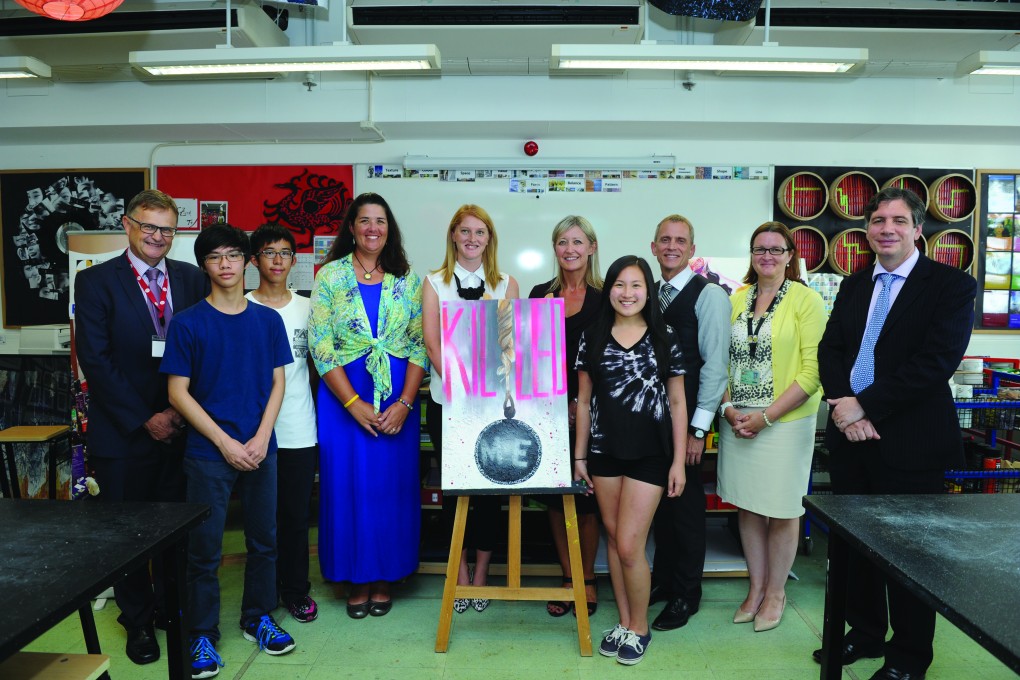Pathways to success
[Sponsored Article] Recognising the need for an inclusive range of pathways to personalise its education on offer, ESF introduced the Applied Learning Pathway (ALP) simultaneously to the International Baccalaureate Diploma Programme (IBDP). The programme was aimed at students who wanted a practical, specialised and career-orientated pre-university education. It enables students to develop essential skills and knowledge to enrich their higher education and career opportunities.

[Sponsored Article]
Recognising the need for an inclusive range of pathways to personalise its education on offer, ESF introduced the Applied Learning Pathway (ALP) simultaneously to the International Baccalaureate Diploma Programme (IBDP). The programme was aimed at students who wanted a practical, specialised and career-orientated pre-university education. It enables students to develop essential skills and knowledge to enrich their higher education and career opportunities.
"The Applied Learning initiative was introduced from 2005 under an ‘Education for All’ initiative led by Diane Bohm, the then Post-16 Adviser for ESF. Diane, the secondary principals and others in post-16 education recognised the need to provide opportunities beyond the IBDP,” says Chris Durbin, former ESF Secondary School Development Adviser. “The model that has now been so successful was initiated by West Island School, led by Rob Stitch, the then Vice Principal who also piloted the IB’s new applied learning equivalent, a forerunner International Baccalaureate Career-related Programme (IBCP). Since the pioneering of ESF colleagues, and the subsequent implementation of others, the growth of year-on-year results have been impressive.”
West Island School first developed a business qualification in 2007-08 as part of the ALP, using the Business and Technology Education Council (BTEC) qualification. These BTEC courses have since become a popular curriculum choice for ESF parents and students as they cater for those students with a specific aptitude for learning.
Chris says the BTEC courses differ from other standardised curricula as they are mostly based on coursework modules and ongoing assessment rather than examinations. “Applied Pathway learning brings out the best in students by providing them with a personalised approach to learning,” he says.

Chris believes BTEC qualifications offer a widely accepted route to university if, as ever, good grades are reached. The BTEC Level 3 Diploma builds a portfolio of experiences and qualifications which allows students to apply for courses where this is particularly important. And ESF students can supplement their BTEC qualifications with IB Diploma courses to broaden their choices for higher education. BTEC qualifications are also an ideal choice for students who have a clear view of their future career or want to focus on a particular subject area, as many of the classes offered are career specific. There is a diversity of these aptitudes catered for sport, engineering, art and design, performing arts and business to name a few. In 2016, 94 students from King George V School, Island School, South Island School and West Island School graduated with BTEC qualifications, receiving offers from universities in Australia, Canada, Hong Kong, Switzerland, the UK, and the US.
ESF also partners with different organisations to help offer high-level training from professionals in particular fields. For example, to help students interested in pursuing careers in sports, ESF works closely with the Hong Kong Sports Institute and the World Academy of Sport, which offers tailored programmes for sports and event participants - athletes, managers, administrators, officials and coaches. For students interested in pursuing a career in the arts, ESF, through the work led by leaders of Renaissance College (RCHK), Carol Larkin and Stewart Redden, has partnered with the Savannah College of Art and Design (SCAD) Hong Kong to offer the IBCP at RCHK. The programme combines foundation courses at SCAD with IB Diploma courses and the IBCP core subjects at RCHK. The SCAD courses provide the students with university credit, and the IB Diploma course studied at RCHK are internationally recognised and well respected by universities worldwide.

Building on the success of RCHK, ESF continued to explore the potential of developing IBCP as part of a personalised learning approach. In 2017, ESF and RCHK collaborated with the Hong Kong Academy of Performing Arts (HKAPA) to offer a new IBCP programme that blends HKAPA’s BTEC courses with IB core courses. The new programme is offered at RCHK and South Island School.
By 2018, ESF will be the largest provider of IBCP in Asia. “ESF’s mission is to develop and implement a personalised approach to learning that promotes well-being and effectively meets students’ needs,” says David Whalley, ESF Director of Education. “In order to promote this personalised approach, we believe that students benefit from a range of options, as no one programme can suit all students’ needs. ESF has therefore devised an applied learning pathway which allows students to focus on creative projects and practical inquiries.”